Sailed through your teens without as much as a blemish, only to be plagued by acne in your 20s and 30s? Well, you’re far from alone. According to a 2018 study published in The Journal of Clinical and Aesthetic Dermatology (USA), 85 per cent of women and 15 per cent of men surveyed had adult acne.
Acne, at any age, can take a toll on your self-esteem. A 2021 study published in The Journal Of American Medication Association found that it impacted mental well-being, and caused social anxiety, depression, and in severe cases, suicidal thoughts.
What is acne?
Acne is a skin condition where your hair follicles become clogged with dead skin cells and serum.
Breakouts that occur after the age of 25 are usually termed adult acne. The causes of this can be similar to what causes acne in teens: Excess sebum production, stress, clogged pores, inflammation, and bacteria.
What causes these breakouts?
In some cases, acne can be genetic, and in others, there are external triggers that cause it. To diagnose the cause of your acne, it is best to consult a medical professional before trying out every serum and spot treatment there is. In some cases, acne could be a sign of an underlying medical condition like polycystic ovary syndrome (PCOS). Below, find some common causes of adult acne.
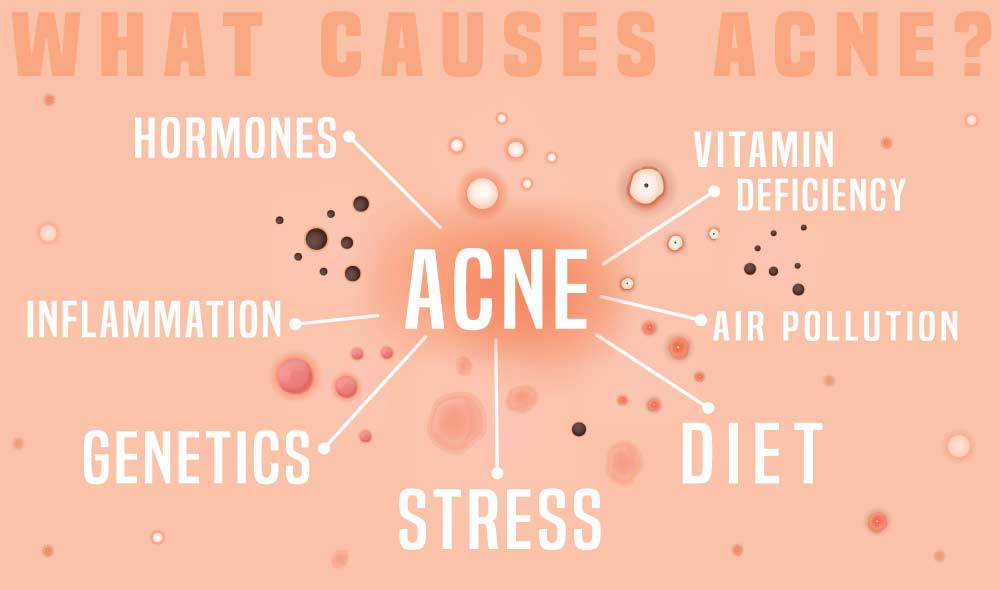
Hormonal changes
Fluctuating hormones can cause inflammation and throw your skin’s pH level off balance. This can lead to excessive oiliness or dryness that exacerbates acne. Some factors that lead to this imbalance are pregnancy, post-partum period, menstruation, and breastfeeding.
It is advisable to consult a dermatologist and get a hormonal blood workup done so you have a clearer idea of how your hormones can be balanced.
Stress
When you’re stressed, your adrenal gland releases cortisol, which is known as the stress hormone. This hormone regulates a ton of processes in your body—think digestive, immune and neurological systems. If you’re perpetually stressed, cortisol starts working overtime and messes with these processes, ultimately causing acne.
To counter stress, you can adopt various stress management techniques like journaling or meditating.
Clogged pores
Perhaps the most common cause of acne, excess oil, and dead skin can lead to blocked pores and congestion. Our environment also plays a huge part in the condition of our skin. Being surrounded by stressors like extreme weather and air pollution can throw sebum production off balance, and the result is acne.
The guiding rule for clean pores is to make sure you double cleanse your skin (first with a balm or oil and then with a face wash) on the days when you’re wearing water-resistant sunscreen and/or make-up. Make sure your pillowcases are clean and that your haircare products don’t come in contact with your forehead or cheeks.
Wrong skincare habits and products
Over-washing your face can cause more trouble than its worth. Sure, it will leave your face squeaky clean, but then, your skin will produce more oil to compensate for the dryness. Make sure you cleanse your face twice a day with a gentle cleanser. Additionally, if you’re exfoliating your skin, opt for chemical formulas that contain acne-fighting ingredients like salicylic and glycolic acid, and use them once a week.
If you have oily or combination skin, it is best to opt for products that have the terms ‘non-comedogenic,’ ‘oil-free,’ and ‘lightweight’ on the label. These are gentle, light formulas that will neither strip your skin dry nor will they clog your pores.
Food triggers
For certain people, dairy products can cause acne. If you don’t know what exactly the reason is, it is wise to note down the food you’re eating every day and your skin, on that day and the following one. This will help you to figure out what it is that you need to cut out from your diet.
8 home remedies for acne
Cucumber and its benefits
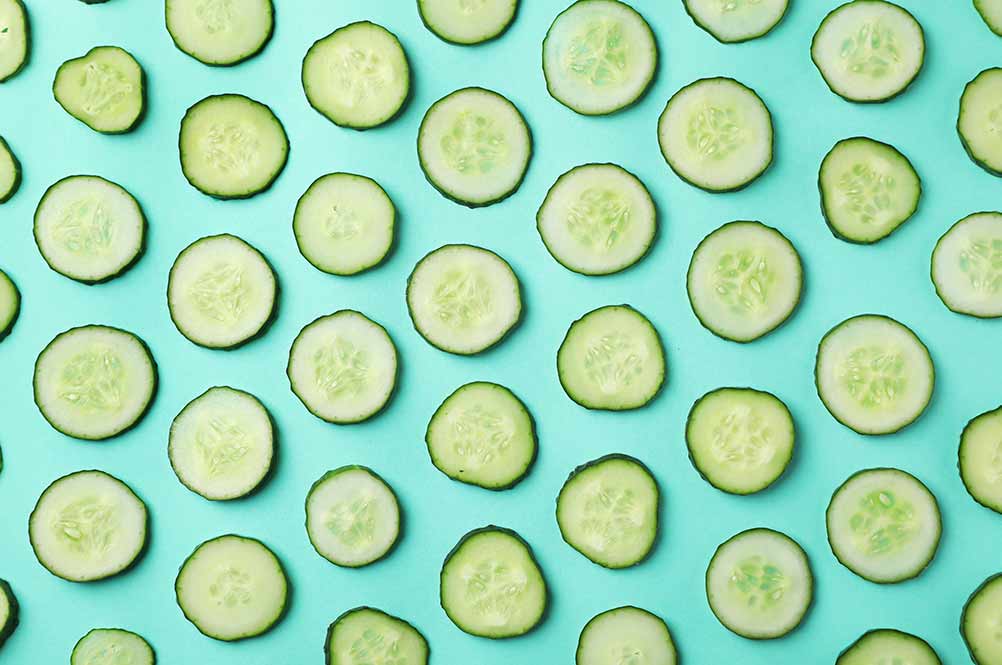
If you have acne-prone skin, cucumber is about to be your skincare BFF. It soothes skin and calms irritation. Mix cucumber juice with some multani mitti and use it to spot treat acne.
Grapes and their benefits
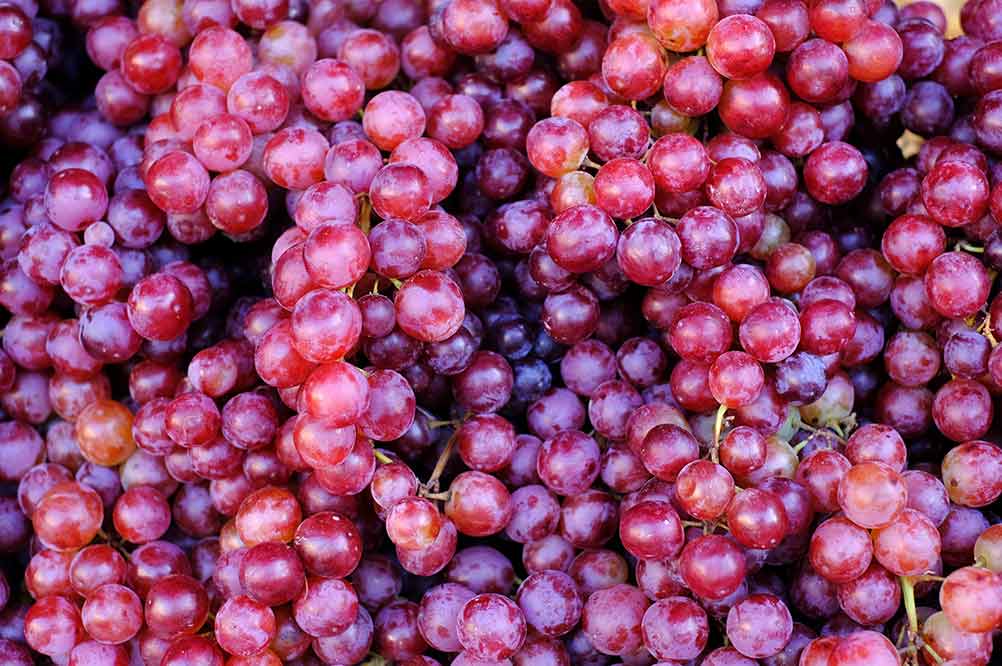
Grapes are rich in collagen that fight signs of ageing. Begin by mashing a few black grapes in a bowl and to this, add some multani mitti and rose water. Mix all the ingredients and leave it on for about 15-20 minutes. Rinse off with lukewarm water.
Almonds and their benefits
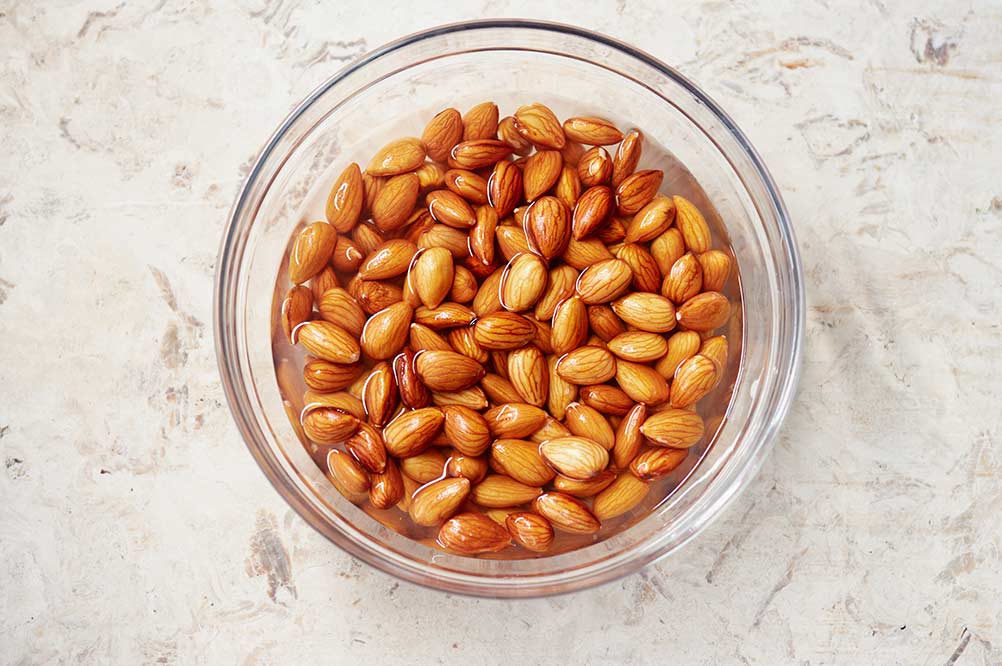
A paste made using yoghurt and soaked ground almonds can help regulate the oil production of your skin. Make sure you apply it on clean skin and that the almonds have been soaked for at least eight hours.
Chickpeas and their benefits
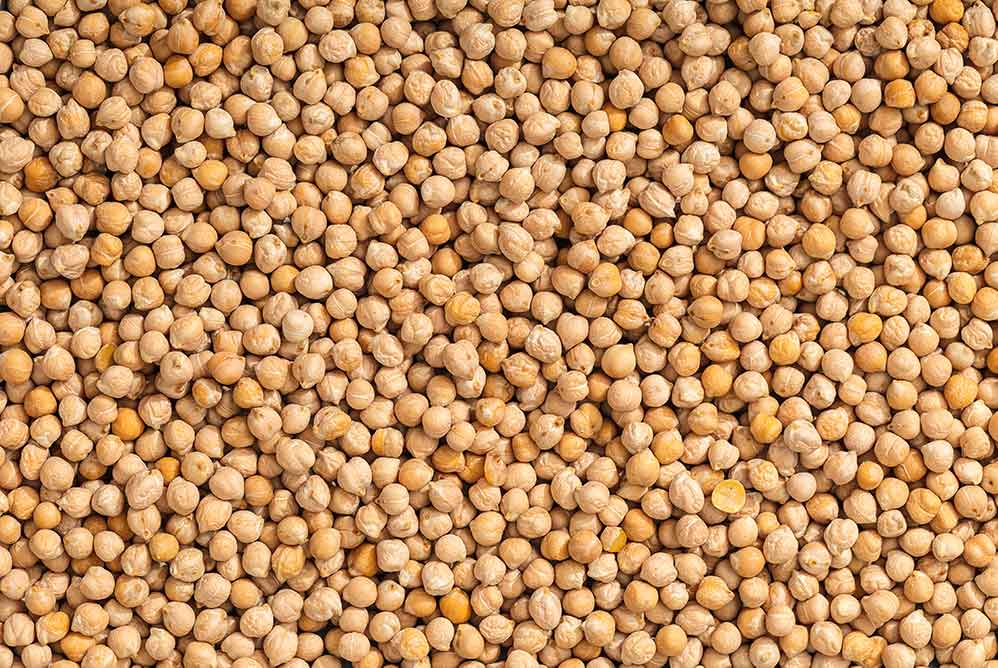
Chickpea flour or besan is rich in zinc that can help eliminate zits. Use it with a dash of rose water and turmeric and you have a potent spot treatment ready to go!
Honey and their benefits
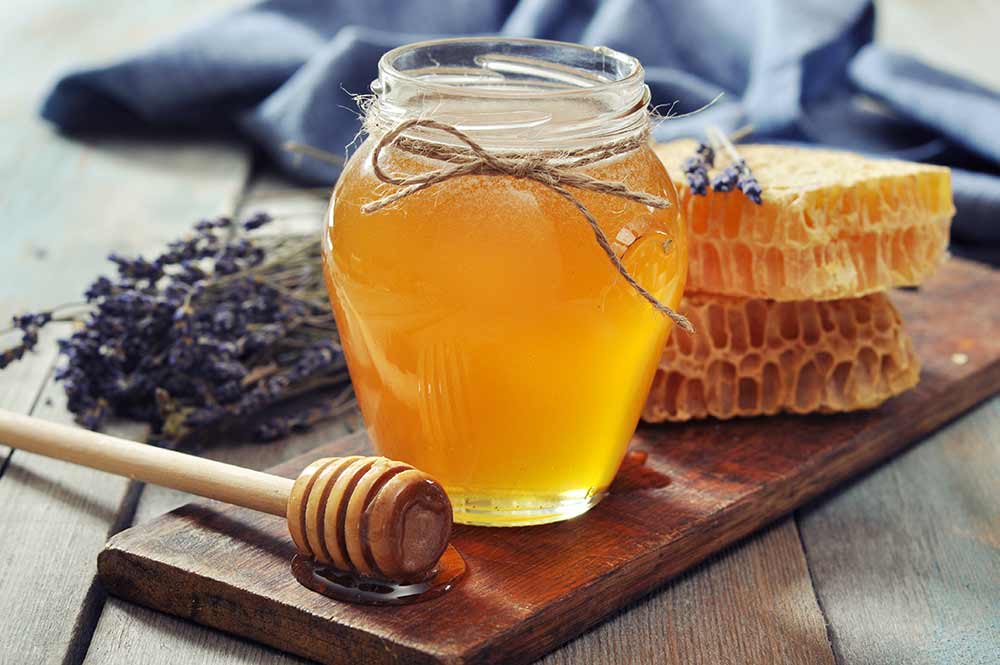
Honey has natural antibacterial properties. It is also great if you have dry, acne-prone skin as it heals pimples without drying out the surface of your skin. Use it directly on acne and wash it off after 10 minutes.
Rosewater and their benefits
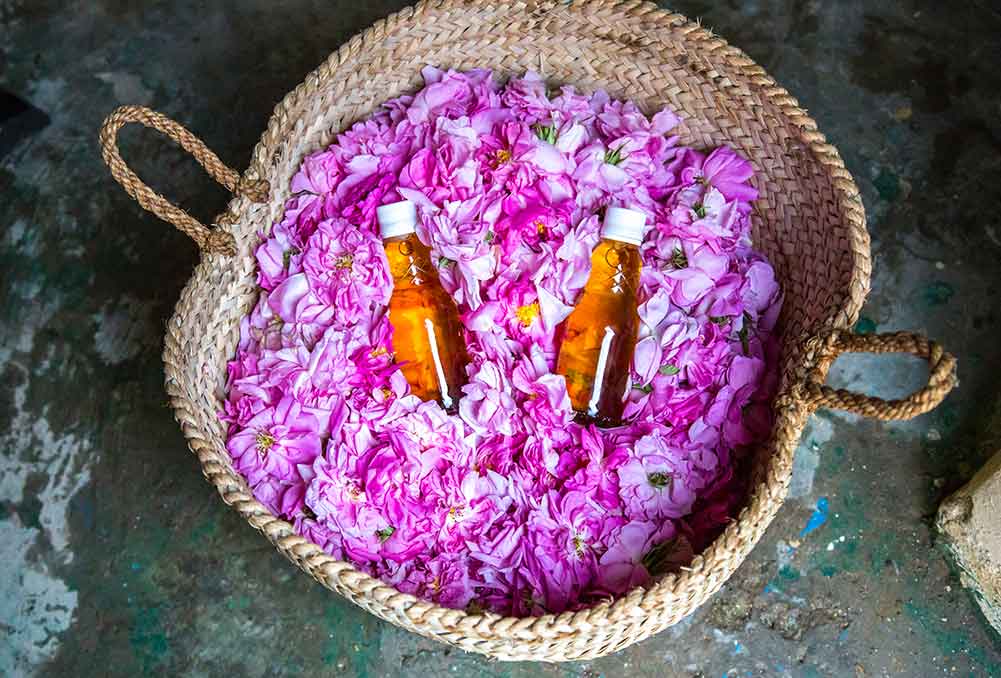
Rosewater is chockfull of anti-inflammatory properties that reduce skin redness and soothe skin. Mix it with some bentonite clay and use it to combat acne and oily skin.
Oats and their benefits
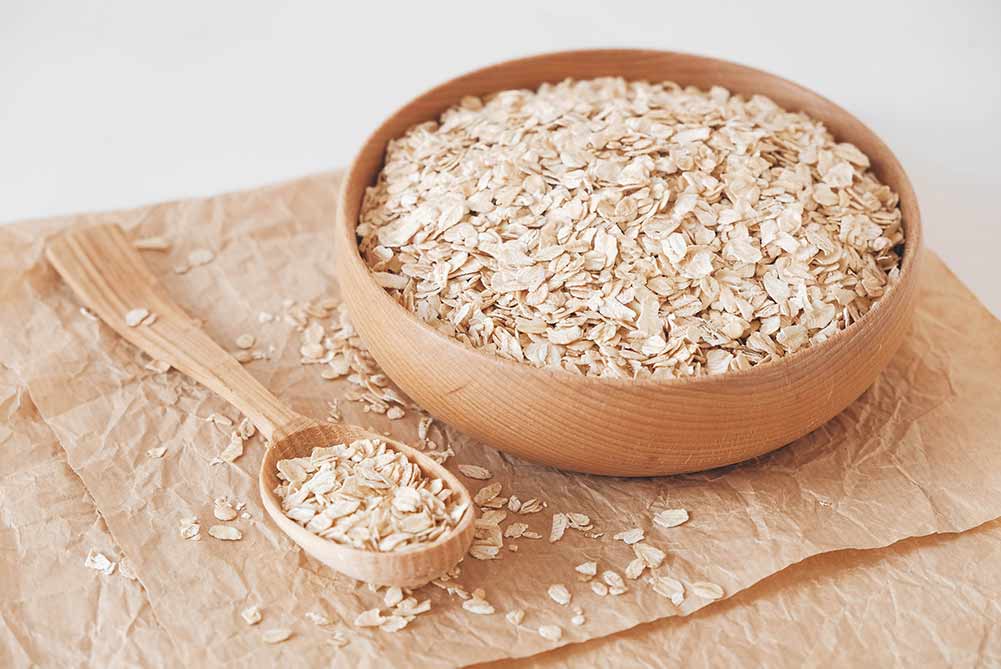
Oats do a fine job of absorbing excess oil from the skin while calming down redness, acne and irritation. They very gently exfoliate the skin, making them the perfect ingredient to use on blemish-prone skin. Use powdered oats along with some curd and turmeric on your face to treat acne and dry skin.
Mint and their benefits
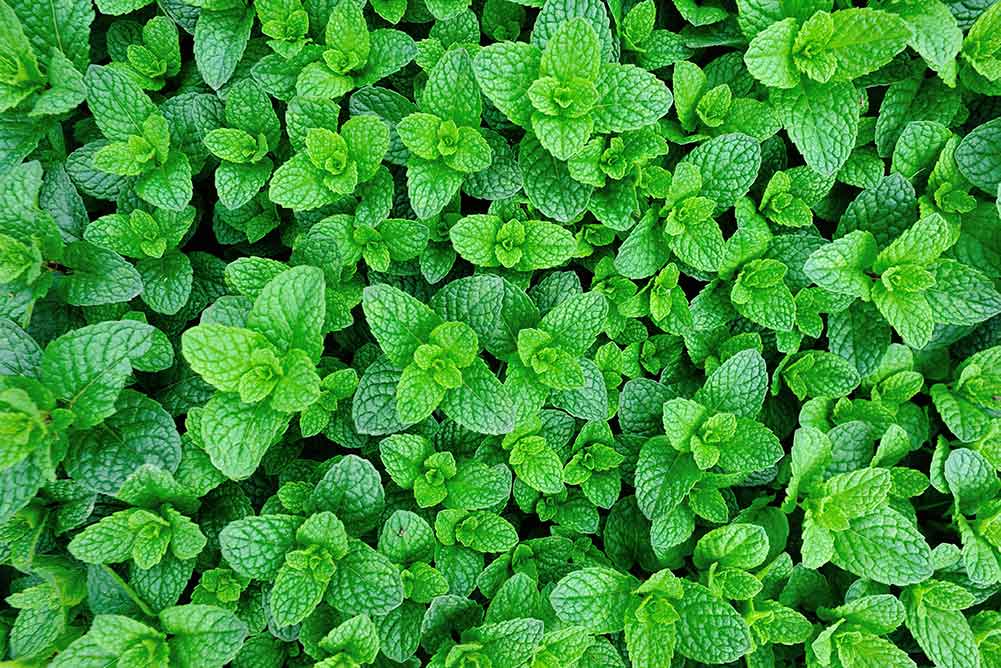
Mint is rich in antioxidants that reduce free radical damage and suppress acne-causing bacteria. Make a thin paste of mint and honey and use it to spot treat pimples.
Other acne-fighting ingredients you need to know about
If you’re more of a store-bought solution type of person, consult your dermatologist and check if your skin will benefit from using any of the ingredients on the list below.
Retinol: One of the most effective acne fighters which can sometimes be too much for sensitive skin. Make sure you stay clear of other active ingredients in your routine and moisturise generously as retinol can dry your skin out.
Salicylic acid: This one works by dissolving dead skin cells so they don’t clog your pores.
Sulfur: A known anti-microbial ingredient, sulfuret works best for all skin types as it is very gentle on the skin.
Benzoyl peroxide: Absorbs excess oil, kills acne-causing bacteria and exfoliates the skin. Talk about triple duty!
Azelaic acid: If you have any redness or inflammation on your skin, this one will be your BFF. It zaps bacteria and cleans out dead skin from the pores.
The don’ts of treating acne
1. Don’t use scrubby textures as those can cause microtears on the surface of the skin and exacerbate acne.
2. Don’t expect overnight results. Your skin takes time to heal from injuries.
3. Be gentle when applying treatments on your skin. Tugging and pulling your skin won’t help.
4. Consult your dermatologist before trying any and every treatment. Sometimes that can backfire and you’ll end up with an allergic reaction.
5. Don’t touch your face! You are depositing more bacteria on the surface of the skin than you realise.
Conclusion
When dealing with acne, it is important to remember that the big picture counts. Don’t expect overnight miracles and instant results. Treating your skin gently is often the best thing you can do to manage acne.
FAQs
Are home remedies safe when treating acne?
Yes, but consulting your dermatologist is always the best idea before test-driving solutions.
Can I try home remedies and prescribed medications together?
No. It is advised to not do that as it can cause adverse reactions.
Do I need to use SPF while treating acne?
Yes. The sun’s UV rays can cause more damage if your skin is raw and/or injured in any way. In the long run, you will be dealing with pimple marks and pigmentation.
In what order do I need to apply a store-bought acne treatment?
Apply it on cleansed skin as the first part of your skincare routine. Follow up with moisturiser and SPF.